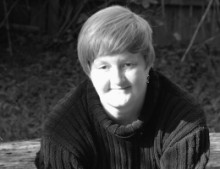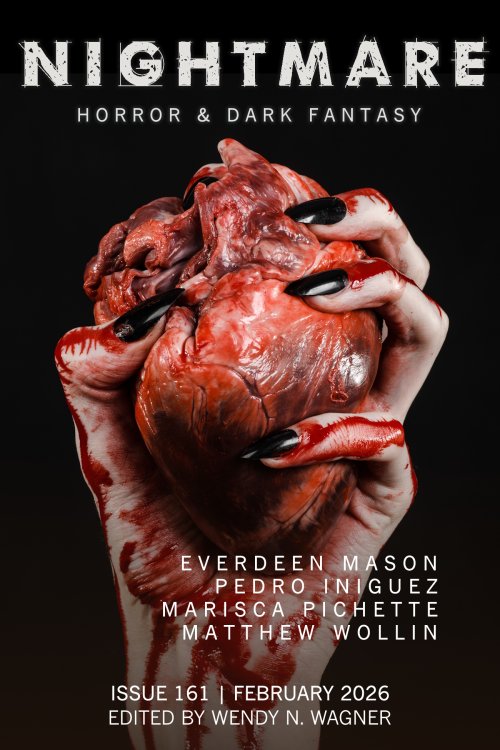“The house felt familiar and homey almost immediately, despite the horrific things that happened there.” What was the genesis of this story? What were some of the ideas you were playing with?
If I told you that the house spoke to me, would you believe me? This is true. I believe that a creative person opens him or herself to the universe. The more creative one is, the more open one is to the possibility of the universe speaking to him. The house in the story is my house in Astoria, Oregon. We spent Christmas 2017 at the house with some friends. The house doesn’t have ghosts. I’d know if it did. But it does have something . . . some special character. Then one morning, the sunlight skipping off the Columbia River through the picture window woke me. I sat up straight in bed and these words were in my brain:
“Some houses never have a soul. It’s not their fault. It’s just the way it is. For a soul to be born to a house, almost too many things have to happen. Three or more families have to have lived there. Someone has to die in the house. Blood has to be spilled. And something, even if it’s just an idea, has to be born in the house. You can always tell when a house has a soul because of the small spiders. They’re everywhere, non-obtrusive, and ever watchful. The small spiders are the eyes of the house, watching those who live in it much like a great beast would observe its own fleas.”
As you can imagine, I was pretty stunned. Out of more than one hundred and twenty published stories, I can count on two hands the number of times that’s happened. I knew it was something special. I also knew that there was a story to be told and that I needed to make sure I wasn’t going to ruin it. When stories come like this, or when characters take over stories, I’ve learned to let them do it. Early on, I stopped them and exerted control. But soon, I discovered that such strategies were wrong. There are some twists and turns in “House of Small Spiders.” I didn’t anticipate them. I didn’t know they were coming. They were as a surprise to me as hopefully they were to the readers.
The poetic, “sanity over humanity,” lines really stood out to me, both for the way they maintained the emotional distance, and still offered no escape from the horror. How do you balance engagement, distance, and voice while still keeping the reader hooked?
The title of the story is “House with Small Spiders.” Many think that the spiders are the story, but as it was in the beginning, it is in the end . . . the house is the main character of the story. My problem was that the house didn’t have a voice. I couldn’t take all of the thousands of voices of the spiders and make anything cogent. So I chose a young girl . . . someone who had a story of her own, much like the story of the house, to narrate the tale. I also wanted to spend some careful thought on a character who felt the need to self-harm. I wanted to highlight the issue without dramatizing it. Then as Susan began to gain her own voice, I noticed a certain detachment. This detachment was what I needed and allowed her to step back and become the house’s narrative voice, making her older and wiser than her years. Had Susan not stepped forward as she did, I never would have achieved the “emotional distance,” as you call it. We owe our thanks to Susan.
Both Susan’s mother and Del’s mother are removed from the main narrative, and the absence of a mother-figure is a trope for a reason. What kind of openings or opportunities did it create for these characters and this story? Would it have been the same if the parents’ roles had swapped?
I needed both mothers to be gone. I didn’t realize it at first. When the house had me writing the story, she just wasn’t there. But then I realized that the house was the mother. She had her own ideas about nurturing and raising the things within her. And Del, because he came from similar circumstances, required a similar backstory. What I felt was interesting is that both mothers were victims as well.
How do you define characters who have suffered? Do you focus on their coping mechanisms, or how their experiences set them up to be the worst/best-equipped hero? I’m interested in how you approach stories with characters like these.
Having spent so much time in the military and around first responders, I’ve become adept at noticing which ones have PTSD and am able to imagine reasons why. Whether it’s the classic thousand yard stare, the way one might react to sounds, the location of seat choice in a busy cafe, or even the hyper-vigilance, I see the external symptoms of those who have encountered something that their brains are having difficulty cataloging. When I finished my SEAL Team 666 trilogy, I realized that I’d left my characters half-formed. In my opinion, the ratio of what they’d seen and done and how it affected them was off. And that was my fault. Then I wrote a story called “Righteous” that was a Bram Stoker finalist that delved into secondary PTSD, or the idea that someone, in this case a father who forced his son to go into the military where he died, had a guilt complex that drove him to do things an ordinary stable person wouldn’t do. I felt I was getting closer, but I hadn’t yet used primary sources.
So, in the now completed trilogy that began with Grunt Life, I specifically created a cast of characters who were exhibiting various symptoms of PTSD and I allowed the readers to discover everyone’s backstory. Then, I gave the whole world PTSD. Finally, I thought, I sat back and figured that I’d finally written about the subject in such a way that I’d added to the canon and could move on. But then I realized I’d never given my characters a chance to recover from it. I’d never allowed them to heal or attain any real catharsis.
Thus began my idea for Burning Sky, my new series. Like before, I have a host of broken characters, but unlike before, we have a much longer road ahead. My characters are all good people, then you discover that each did something irredeemable. And I mean terrible. Then I try and make it so that you, the reader, will accept them as they learn to come to terms with themselves. I’m super excited about the way the first book turned out, and am about to begin working on the second book.
Shortly after I turned in Burning Sky to the publisher, I wrote “House of Small Spiders.” I wanted to try something new. What if I was to give the house PTSD? So many of us think of a home as a living and breathing place. A house is witness to all of the good and all of the bad. Knowing what goes on behind our own closed doors and shuttered windows, we can only guess at what happens with our neighbors. So I wondered, if a house did have a soul and if a home is inherently good, then how would bad things affect it? How would a home exhibit PTSD? Would it co-opt the residents and use them? Was that the visible symptom? Or would seeing and experiencing evil change the nature of a home? Would it then make the home evil? I’m already on record as coming up with the first paragraph in its entirety while I stayed in my home in Astoria, Oregon. The rest of this, the supposition, came after. The house gave me the idea that the spiders would be its eyes and ears. My supposition gave them their voice. And to write the story, all I had to do was listen.
What’s next for you? What can we expect in 2018?
My next novel is Burning Sky, and comes out in paperback from Solaris Books this month. This is the long awaited first book of a new series from the publishers of Grunt Life, Grunt Traitor, and Grunt Hero—where I spent a thousand pages dissembling the abilities of PTSD sufferers to defend the planet against alien invasion. In Burning Sky, I return to the military horror milieu and continue the theme of broken characters trying to come to terms with themselves. But Burning Sky also introduces a race of ancient monsters that have been reported to be in the region known as Afghanistan long before Alexander the Great made it his playground. My publishers believe this is the best thing I’ve ever written and have gushed over the narrative. I just hope my fans love it, because more and more I realize I’m writing for them.









